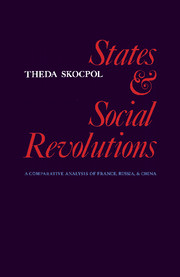Summary
“The basic question of every revolution is that of state power,” Lenin wrote in the midst of the Russian Revolution of 1917. Here was Lenin the revolutionary organizer speaking. As a theorist, nevertheless, Lenin followed Marx in maintaining that historical developments in class relations were the structural matrix from which revolutionary contests for state power arose, and in believing that class conflicts were the means by which questions about the forms and functions of state power would be resolved. Bourgeois revolutions had served to strengthen states as instruments of bureaucratic and coercive domination. Yet anticapitalist, socialist revolutions would pave the way for the atrophy of the state as such, because there would be no occasion for state domination over the producing classes in whose name, and by whose efforts, such revolutions would be made.
The analysis of this book suggests both the truth and the limits of Lenin's vision of states and revolutions. Questions of state power have been basic in social-revolutionary transformations, but state power cannot be understood only as an instrument of class domination, nor can changes in state structures be explained primarily in terms of class conflicts. In France, Russia, and China, class conflicts — especially between peasants and landlords—were pivotal during the revolutionary interregnums.
- Type
- Chapter
- Information
- States and Social RevolutionsA Comparative Analysis of France, Russia and China, pp. 284 - 293Publisher: Cambridge University PressPrint publication year: 1979



